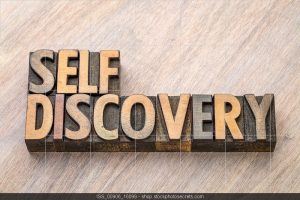Deepening Diversity: A Journey of Discovery
I have always been aware of what makes me different from others. I’ve spent years checking off boxes that identify me as disabled. This is important when schools, employers and groups are looking for diversity or are making efforts to be inclusive. I’ve seen it as an invitation to be included and an opportunity to get in the door, so I never hesitate to check the box.
My goal in participating in the AFP Fellowship in Inclusion and Philanthropy was to take advantage of the incredible professional development and mentorship opportunity. This has been invaluable.
What I didn’t expect was to experience a rude awakening to the harsh realities of many others within my own community and a deeper understanding of the privilege I have had and have often ignored. I’ve taken a hard look at the issues many within the disabled community face as well as those from other marginalized communities. If I’m honest, it has been a challenging process that’s lead me to contemplate some difficult questions.
Daniel Lanteigne, an AFP fellow, recently wrote about dealing with imposter syndrome after our diversity training session in the fall. Some of his reflections rang true for me, though not all.
I arrived at the session knowing I might be the only participant with a visible disability. I knew there were others with disabilities, however we didn’t identify ourselves nor were others’ disabilities visibly apparent. Most of the training was focused on race relations and my own sense of difference felt small in comparison. Though my life hasn’t been without judgment and stigma, I don’t think I’ve ever experienced the threats and barriers that some other fellows had either experienced or shared stories of.
I realized throughout the day that many others in the group had more knowledge about their own group or community than I did, either through their education or work. Beyond their lived experience, they had degrees in international relations, social justice, law, etc. They had studied and made their life’s work about creating real change. I felt out of my league. Really, my experience with diversity and the disabled community didn’t expand much beyond my own lived experience and I felt that any advocacy I’d done had only been for my personal benefit.
I currently work as a fundraiser for an organization that benefited me greatly as a child: it serves kids with disabilities and their families. So I am aware of the needs of our community from a service perspective and I fundraise passionately for this cause. My realization at the training was that just living my life and the work that I do might not be enough. This fellowship has made me think more about stigma and social justice.
Since the training, I’ve been paying more attention to disabled advocates and activists who post online, especially on Twitter. There are many discussions on representation, use of language related to disability, day to day realities, etc. It has encouraged me to reexamine my own experiences, to amplify the voices of others when I can and to speak up more when there is a need or when I see an injustice. I also know disability isn’t a standalone issue—there are so many intersections that must be acknowledged. I really hadn’t thought about intersectionality as a white, straight, disabled female. I am now more aware and do my best to consider the complexities of everyone’s experience as well as my own. I’m realizing that there are many opportunities to speak out and affect change.
Recently a friend told me that he shares my story when others complain about their lives. His assumption is that, as a person with disability, I have it worse and I should be the one complaining. If I can be happy, everyone else should be. This is the very problem with living my life and thinking this will help end stigma around disability. I was too taken aback to respond in the moment but when I find the right words we will discuss how my existence isn’t to make everyone else feel better. That’s not what we are here for. It doesn’t help our community.
These experiences have been eye opening, empowering, difficult, depressing, alarming and also hopeful. Though I am unclear on where this path will eventually lead, I have made a commitment to do more to change minds and hearts.
Alison Hughes is a Development Officer at Holland Bloorview Kids Rehabilitation Hospital Foundation and is an AFP Fellow in Diversity and Inclusion.







